Understanding the Devin Nunes memo and affect on Donald Trump
Click to read the full story: Understanding the Devin Nunes memo and affect on Donald Trump
Devin Nunes is currently hogging the American political media spotlight with Donald Trump with what’s being called “the Nunes memo.” By now, most of you have heard about it, but what exactly is it and why is it causing so much fuss.
Sadly, everything Trump does creates a big media fuss, so it’s every easy to get numb to it all, but this is one fuss that’s worth paying attention to and understanding.
If you recall, Rep. Devin Nunes (R-CA) is the guy who jumped on the Donald Trump train when it came to the Barack Obama wiretapping claim the president made on Twitter about one year ago. It was actually the weekend after his first major speech to Congress.
Nunes was the run who rushed to the White House in the middle of the night (yes, it’s got the drama of All the President’s Men) and said he had just received papers that he then delivered to the White House the next morning. It turned out that the White House had actually given him the papers to give back to them with a big press conference flourish. It’s ‘that’ guy, which should give many people pause about why he’s suddenly running this investigation again since he was recused from it.
The four-page document, prepared by Nunes, alleges serious abuses of power by the FBI during its investigation into the Trump campaign’s ties to Russia. House Republicans and conservative media see it as proof of President Donald Trump’s long-running allegations of FBI bias against him; Democrats say it’s deeply misleading, twisting and cherry-picking classified intelligence to make the president seem right.
The memo quickly became issue No. 1 on Monday evening, when House Republicans voted to release it to the public. The vote kicks things to Trump, who has until Saturday to decide to release it — over the FBI’s objections — or keep it classified. Democrats are trying to slow down this process, but it’s not clear how successful they’ll be.
The stakes are big. The memo reportedly discusses classified intelligence in depth; its release could compromise that data. Worse, its contents could be used by President Trump to clean house at the Department of Justice — firing top officials he perceives as insufficiently loyal, like Deputy Attorney General Rod Rosenstein, and shutting down the Mueller probe.
The memo, in essence, raises this question: Is there an anti-Trump bias at the FBI, and if so, does it justify placing the historically independent bureau under Trump’s personal control? It’s a question with profound implications for the health of American democracy, and one that explains why the fight over the memo’s release is the fight of the moment.
What follows is a guide to the biggest issues about the Nunes memo, based on what we know about it publicly.
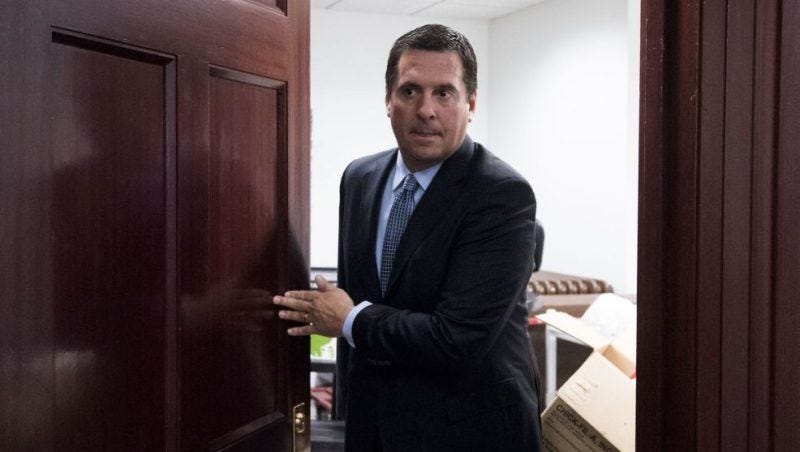
Just who is Devin Nunes, and why did he prepare this memo? What does he get out of it?
Devin Nunes is the chair of the House Intelligence Committee and a longtime Trump ally. He served on Trump’s transition team after the election and defended former National Security Adviser Michael Flynn when he was (credibly, it turns out) accused of lying about his contacts with Russia last February.
Nunes “seemed to go out of his way to defend Trump,” the Washington Post’s Aaron Blake wrote, “in a way few others did.”
Perhaps the clearest example arose after Trump tweeted in March that President Obama had “wiretapped” Trump Tower during the 2016 presidential campaign. The heads of both the NSA and the FBI categorically denied that any such wiretapping had occurred. But Nunes quickly came to Trump’s defense, holding a press conference to announce that “the intelligence community incidentally collected information about US citizens involved in the Trump transition.”
What this actually meant is that some Trump transition personnel had been in contact with foreigners legally under surveillance, and their conversations were intercepted as part of that surveillance (that’s what “incidentally collected” means). This, needless to say, did not vindicate Trump’s claim that the Obama administration was spying on his campaign headquarters.
However, the timing of Nunes’s press conference and the confusing way in which Nunes presented the information made it seem like he was trying to provide cover for Trump. The president himself said Nunes’s revelation “somewhat” vindicated his tweets.
Then it turned out that Nunes got his information from the Trump White House itself. Ezra Cohen-Watnick, the National Security Council’s senior director for intelligence, uncovered the information; Michael Ellis, a White House attorney who worked for Nunes before the Trump administration, personally took it to Nunes.
To recap: Nunes released information in such a manner as to make it look like Trump’s claims of being persecuted by law enforcement were true — and did so after secretly getting the information from the Trump White House. The situation proved to be such an embarrassment that Nunes was forced to recuse himself from the intelligence committee’s investigation into Russia for eight months during a House ethics investigation into his conduct.
So when news broke in mid-January that Nunes had been working in secret to prepare a memo on FBI surveillance of the Trump campaign, the initial sense among intelligence experts was that it would be a repeat of the wiretapping debacle — Nunes misrepresenting intelligence to support President Trump’s political position.
But many of Nunes’s colleagues in the House saw it as damning proof of anti-Trump animus at the FBI. They started a public campaign, backed by conservative media, to #ReleaseTheMemo. This culminated in Monday’s vote by the intelligence committee, along party lines, to begin the process for formally releasing it.
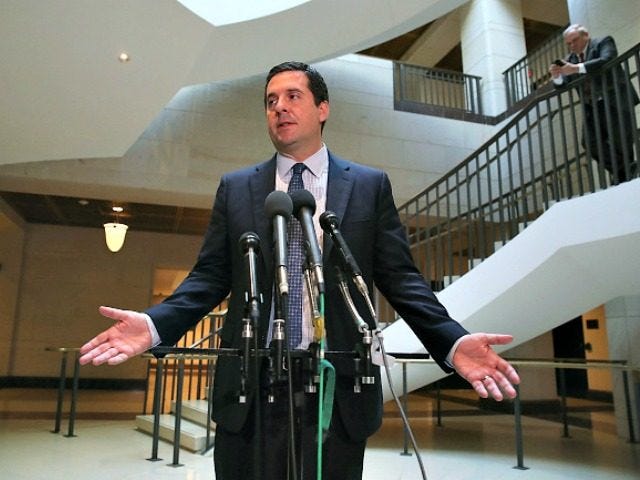
What does the Nunes memo allege?
The full contents of the memo obviously aren’t public yet. But several officials familiar with its contents told the New York Times that it focuses on surveillance of Carter Page, a Trump campaign foreign policy adviser with business ties to Russia and open sympathies with the Kremlin’s foreign policy. The key allegation, according to the Times and other outlets, is that the surveillance of Page was improperly authorized — and potentially politically motivated.
In July 2016, while advising the Trump campaign, Page flew to Moscow and met with Russian officials. This raised eyebrows among US intelligence officers, to say the least. So the FBI and DOJ put together an application to a Foreign Intelligence Surveillance Act (FISA) court — a court that approves surveillance warrants pertaining to national security and foreign intelligence — to start watching Page. The court granted the application.
The Nunes memo reportedly alleges that this surveillance was not properly vetted by the court; specifically, that it relied on the now-infamous Steele dossier, the document prepared by former British spy Christopher Steele alleging the existence of a conspiracy between Donald Trump and the Russian government.
“The memo’s primary contention,” the Times writes, “is that FBI and Justice Department officials failed to adequately explain to an intelligence court judge in initially seeking a warrant for surveillance of Mr. Page that they were relying in part on research by [Steele].”
Steele’s research was, partially and indirectly, financed by the Clinton campaign — which the memo alleges is a major problem. Not only did the FBI spy on a Trump adviser on the basis of partisan opposition research, the argument goes, but they weren’t fully honest with a judge about doing so.
There are lots of problems with the memo’s alleged line of reasoning. For one thing, Steele is a respected investigator, and some of his dossier’s less explosive allegations have so far proven to be true. The FBI’s surveillance application may have relied on Steele’s findings, but if that’s true, it doesn’t necessarily discredit the application.
For another thing, the memo’s claims are impossible to evaluate without seeing the underlying intelligence it was based on. Nunes could have highlighted the FBI’s citation of Steele without mentioning other, more concrete sources the agency listed.
“The memo won’t actually answer the underlying question, which is whether there was sufficient independent evidence to support the underlying FISA application,” Steve Vladeck, a law professor at the University of Texas, said. “Only the application materials can conclusively shed a light on that.”
Finally, the idea that FBI agents would act in such a way — and a FISA judge would let them — strikes a lot of legal observers as absurd. The FISA process certainly can and has been abused — that’s something civil libertarians have been warning about for a long time.
But this particular method of abuse would require an implausibly vast conspiracy, for reasons former FBI special agent and current Yale Law professor Asha Rangappa lays out in a detailed post on FISA procedures at Just Security:
The Nunes Memo reportedly alleges that at least a dozen FBI agents and DOJ prosecutors fabricated evidence, engaged in a criminal conspiracy to commit perjury, lucked out on being randomly assigned Judge Low Blood Sugar who looked the other way, and — coincidentally — ended up obtaining evidence that justified extending the initial FISA surveillance. …
If Nunes has, in fact, singlehandedly uncovered this vast criminal enterprise, it’s hard to know what’s more astonishing: That a government bureaucracy managed to pull it off — or that Nunes has exposed it all in a scant four-page memo.
So if the Times’s description of the memo’s “primary contention” is accurate, then there are good reasons to be skeptical of it even beyond Nunes’s personal history of misusing intelligence.
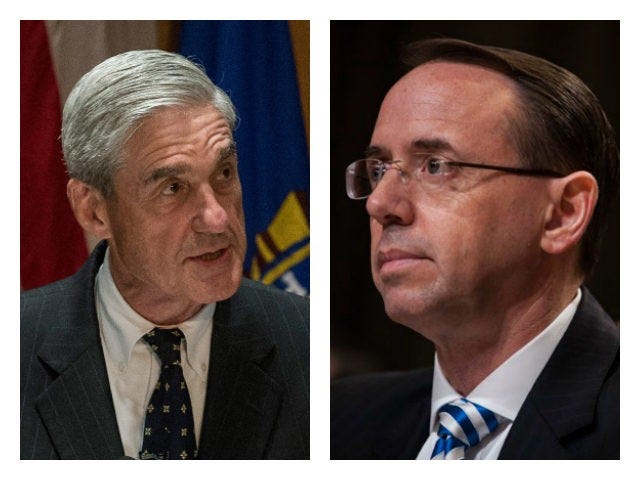
Who does the Devin Nunes memo implicate?
There’s a second part to the memo, according to the Times report, focusing on the reauthorization of surveillance of Page in 2016. This part is vital because it directly implicates Deputy Attorney General Rod Rosenstein — the man currently supervising special counsel Robert Mueller’s Russia investigation.
In late spring of 2017, the FBI petitioned to renew its surveillance warrant on Page. According to the Times, the memo claims Rosenstein personally signed off on the renewal application.
The reason this matters, the Times writes, is that “Republicans could potentially use Mr. Rosenstein’s decision to approve the renewal to suggest that he failed to properly vet a highly sensitive application for a warrant to spy on Mr. Page.” But it’s actually deeper than that.
The memo already seems to imply that the Russia investigation is a corrupt partisan hatchet job. By bringing Rosenstein into it, it also ends up indicting the guy currently in charge of the Russia investigation — suggesting he’s at best incompetent and at worst corrupt. Theoretically, this would be cause for Trump to dismiss Rosenstein.
Trump currently can’t fire Mueller without Rosenstein’s say-so; Rosenstein said in December that there is no “good cause” to fire Mueller. If he were to fire Rosenstein based on the memo, he might be able to get to Mueller.
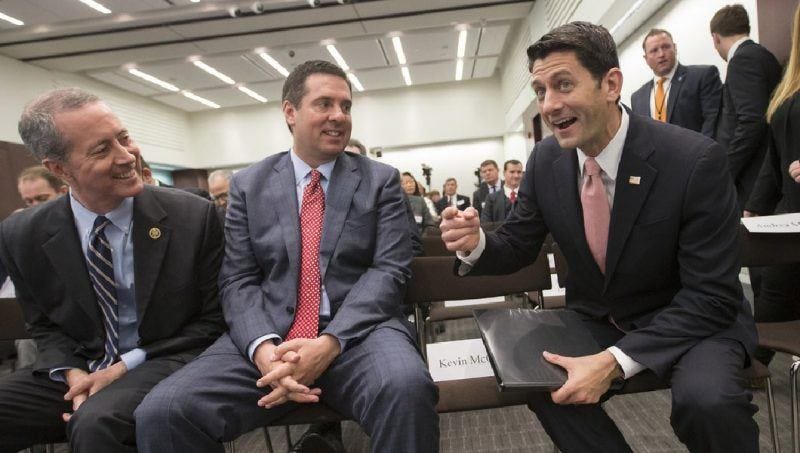
What is driving House Republicans to want to release a classified document?
Ostensibly, Republicans in the House have been pushing to release the memo because they believe it outlines surveillance abuses the American people need to know about.
“Let’s have a great debate about its consequences and the opportunity it presents to make things better, so these things never happen again,” Rep. Matt Gaetz (R-FL) said in a January 30 speech on the House floor.
But experts on the FISA system, even civil libertarians critical of the way law enforcement uses it, are skeptical. They note that these Republicans aren’t proposing any changes to how FISA works, or even suggesting that the system in general needs reform to stop any future abuses.
“There’s a conspicuous lack of interest in drawing any policy conclusions from what they purportedly consider a major institutional scandal,” Julian Sanchez, an expert in privacy law at the libertarian Cato Institute, said.
Instead, the motivation seems purely political. Many of the most vigorous supporters of #ReleaseTheMemo, like Gaetz, have also called on President Trump to fire Robert Mueller. “I think the president should’ve fired Mueller long ago,” Gaetz said in a December interview with media outlets.
These are people who seem to either genuinely believe that the Russia investigation is a partisan witch hunt targeting the president or believe there’s some political advantage to be gained from championing an anti-FBI crusade near and dear to both the president’s and Fox News’s heart.
Either way, experts say the motivation behind the memo’s release seems pretty clear — it’s a way of waging war on the Russia investigation specifically and the FBI in general.
“The release of the memo, and the fabrication of a set of ideas around the memo empowers Trump to go after the FBI,” Ryan Goodman, a former Defense Department special counsel and current editor of Just Security, said. “The ultimate goal is undermining the Mueller investigation. There doesn’t seem to be another reason for the president to be so obsessed with Rod Rosenstein and to be gunning for him.”
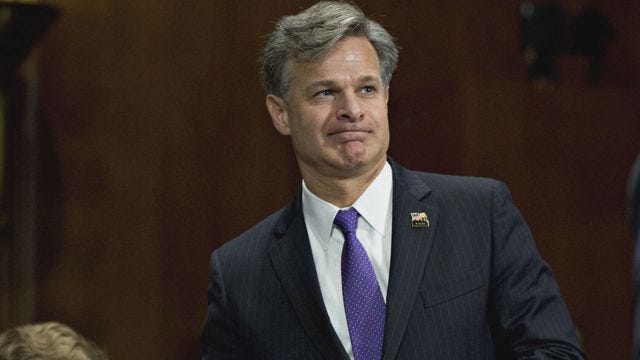
Why do the FBI and Democrats oppose it?
The FBI and Democrats don’t like the Nunes memo for one big reason: They think it’s full of lies.
On Wednesday, the FBI put out a strongly worded statement signaling the agency’s worry with the memo’s accuracy:
The FBI takes seriously its obligations to the FISA Court and its compliance with procedures overseen by career professionals in the Department of Justice and the FBI. We are committed to working with the appropriate oversight entities to ensure the continuing integrity of the FISA process.
With regard to the House Intelligence Committee’s memorandum, the FBI was provided a limited opportunity to review this memo the day before the committee voted to release it. As expressed during our initial review, we have grave concerns about material omissions of fact that fundamentally impact the memo’s accuracy.
Rep. Adam Schiff (D-CA), the top Democrat on the House Select Intelligence Committee, said after the statement that he sided with the FBI. “I think the FBI is exactly right. I have the same grave concerns over it.” He added that he knew of the FBI’s concerns before he voted against the memo’s release.
Schiff and his fellow Democrats on the committee also went the extra step of compiling a 10-page memo of their own. It reportedly asserts two things. First, that the FBI didn’t abuse its FISA power when requesting the Page warrant. Second, and more importantly, that the Nunes memo is simply an effort to help the White House discredit the Mueller probe.
On Monday, Rep. Mike Quigley (D-IL) asked Nunes if his staffers worked with the White House on his memo. Nunes originally answered the question by saying “as far as I know,” no one collaborated with the White House. Ultimately, though, he refused to answer the question — perhaps suggesting that there may actually have been some collusion there.
The House Intelligence Committee, however, voted not to make the Democratic memo public. But late on Wednesday, Schiff tried another gambit — arguing that Nunes “substantively” altered the memo in between voting to release it and sending it to Trump and that the altered memo would require another House vote. It’s too early yet to tell if this argument will fly.
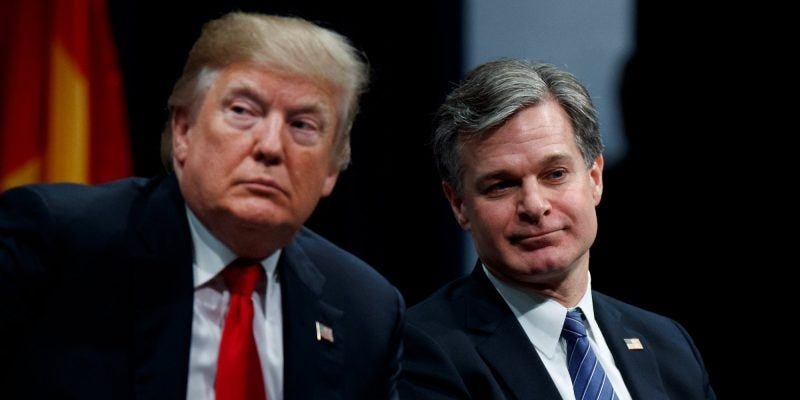
Will Donald Trump actually release the Nunes memo?
It’s unclear — but Trump has signaled that he might. He was heard on a hot mike that he would “100 percent release it” after his State of the Union address. We all know that Trump loves the reality show drama and having everything in his hands like this, but knowing that this memo was basically created to help him with the Bob Mueller Russia investigation, don’t be surprised for this to come out.
“We can only hope that someone in the White House uses common sense to let Trump know how bad this could actually wind up making him look once it’s discredited,” a Congressional aide said.
Trump has the power to declassify the information in the memo (and the underlying FISA documentation), but he has yet to see the memo, according to White House press secretary Sarah Huckabee Sanders.
Still, after his State of the Union address on Tuesday night, Trump told Rep. Jeff Duncan (R-SC) that he would “100 percent” make the memo public in the coming days. And on Wednesday, Chief of Staff John Kelly told Fox News Radio that the memo “will be released here pretty quick, I think, and the whole world can see it.”
There’s a reason Trump may ultimately decide to release the memo: He has publicly stated several times that the Trump-Russia probe is a “witch hunt” perpetrated by rogue partisans within the FBI.
“Trump is shockingly overt about believing that the problem here is that the FBI is staffed by loyalists to the wrong person,” Sanchez, the privacy law expert at the Cato Institute, said. “He does, in fact, seem to think that the job of the DOJ, and the FBI, and the rest of the intelligence community is to protect the president and follow his orders — including going after his political enemies based on stuff he saw on Fox News, if that’s what he wants to do.”
So Trump could decide to release the memo to try to prove his suspicions correct.
But it could also backfire. It’s possible that the evidence Nunes presents in the memo is thin. Worse, the fallout of the release could lead to more leaks proving that Nunes’s account is wrong. That would not only hurt the conservative argument against the Russia probe but prove a self-inflicted wound.
So it’s possible that Trump will make the memo public — but at this point, it’s still up in the air.
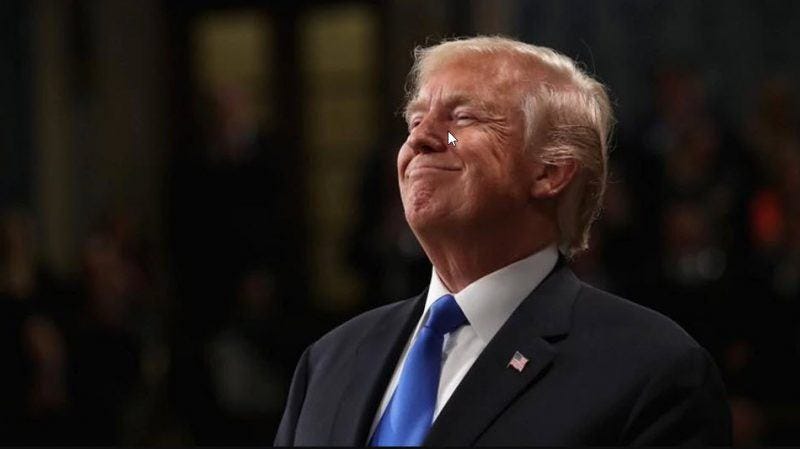
What happens if the memo does get released?
The first thing people will likely look for is the evidence Nunes has to prove the Mueller investigation into Trump’s 2016 campaign was based entirely on the controversial Steele dossier, a largely unconfirmed opposition research document asserting corrupt collusion between Trump and Russia.
Recall that the memo saga began in the fall of 2016 when the FBI applied for a warrant from a federal court to wiretap Page. Republicans claim the FBI based its warrant on information in the Steele dossier.
The FBI has another story: It says it obtained a warrant based on information from a variety of sources that showed they had probable cause Page may have been acting as an agent of the Russian government.
That will lead to the second outcome of the memo’s release: calls to see the FISA documents.
Many conservatives who are calling for the release of the memo are also calling for the disclosure of the FISA documents it’s allegedly based on. Those files would show the information included in the warrant application presented to the federal court judge who approved the surveillance of Page.
If it’s what conservatives claim, they can say they uncovered the conspiracy. But if documents show the FBI told the truth from the start, that puts a big damper on the Nunes-led narrative.
In sum, some conservatives will take Nunes’s memo at face value and continue to lambaste the FBI as a partisan, anti-Trump agency. Others will want to see the underlying documentation to see if what Nunes claims is true. Meanwhile, Democrats will almost certainly push back on the memo — regardless of what it alleges — and deride Trump for releasing it.
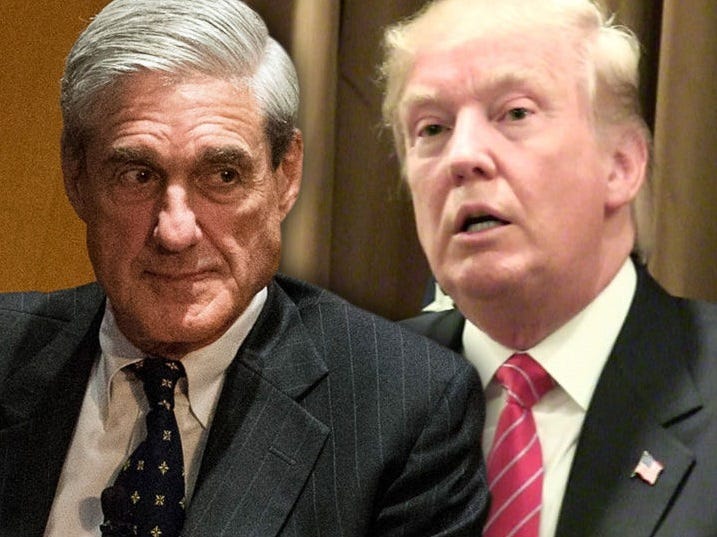
Does this threaten the Mueller probe?
Possibly.
The effort to release Nunes’s memo is part of a much larger conservative effort to discredit the Mueller investigation. And once it’s released, it will serve as another data point for the growing anti-Mueller movement.
But the memo could also serve as a pretext for removing those responsible for the Mueller probe. According to the Washington Post, Trump told his close advisers that the memo could give him the ammo he needs to fire Rosenstein or force him to resign. Trump could replace Rosenstein with someone friendlier to the Trump administration and more willing to constrain Mueller. That could prove more detrimental to the Mueller probe in the long run.
Rangappa, the Yale expert, writes that the deputy attorney general could effectively cripple the Mueller investigation by rejecting Mueller’s requests to investigate more people, obtain new evidence, or pursue charges against additional people, for instance. More simply, the new appointee could just fire Mueller.
And, of course, it’s also possible that Nunes’s core allegation — that the FBI surveilled Page because of claims made in the Steele dossier — proves true. If so, that could potentially delegitimize the Mueller probe and perhaps lead to Mueller’s dismissal.
That said, this is more of a political game than a legal one. Nunes and many conservatives say there’s proof in the memo that the FBI is corrupt, and the FBI and Democrats say this is all a smokescreen to protect the president.
What the memo’s release will do, if it happens, is take this fight to the next level. It will be an all-out war between the House Republicans and Trump administration officials who want the president to fire Rosenstein and shut down the Russia probe, and the FBI and Democrats who oppose all of this.
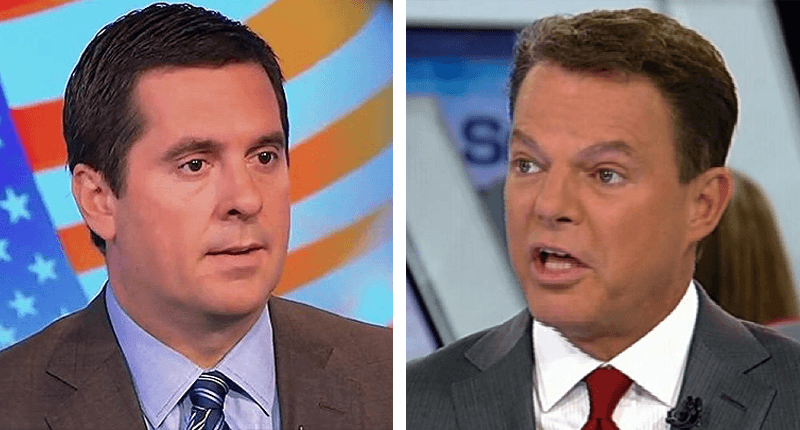
How bad could the memo fallout get?
There are two broad ways this political war between the FBI and Trump and his allies could go. In the first, the FBI is brought to heel. Rosenstein and the other senior FBI executives are fired and replaced with more Trump-friendly appointees. The Mueller investigation is quashed, and the bureau essentially serves more like an arm of the Trump administration than a quasi-independent agency.
The implications of this scenario for American democracy are pretty scary.
“I shudder to think what the [2020] election looks like when you’ve got a guy who says, ‘I saw Fox & Friends this morning, and my opponent is a crook’ … except now you’ve got an FBI and a DOJ that say, ‘Yes, sir,’” says Sanchez.
In a second scenario, the memo leads to a lot of FBI-Republican skirmishing but no actual showdown. Trump either decides not to fire Rosenstein or is somehow stopped from doing so, the Mueller investigation continues unhampered, and the FBI remains relatively untainted by political influence.
There are many factors that could make the difference between these two outcomes. Two of the key ones are congressional Republicans, particularly Senate Republicans, and Trump’s own staff.
Senate Republicans have been notably quieter and more restrained about attacking the FBI than their peers in the House. Senate Republicans also have to confirm Trump appointees to the Justice Department; they could make clear that if he fires Rosenstein/Mueller and tries to appoint a crony to take their place, they won’t confirm whomever he picks.
What influential Senate Republicans say and do after the memo’s release, in short, could signal to Trump whether he has enough backing to really take on the FBI.
“This particular president advances when he senses weakness,” Goodman said. “The critical factor is the will of many Republicans to stand up.”
Members of Trump’s White House have also blocked his moves to interfere with the Mueller probe in the past.
The New York Times reports that in June, Trump ordered White House counsel Don McGahn to fire Mueller. McGahn said he’d rather resign than do that, and Trump backed down. He was, according to the Times, “concerned that firing the special counsel would incite more questions about whether the White House was trying to obstruct the Russia investigation.”
If McGahn and other voices of relative restraint in the White House succeed in backing the president away from the memo fever that will soon be playing out all over the conservative news, or even outright refuse to carry out his orders, then you might see the same thing again in the wake of the memo’s release.
The post Understanding the Devin Nunes memo and affect on Donald Trump appeared first on Movie TV Tech Geeks News By: Shanka Cheryl
